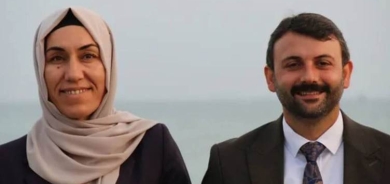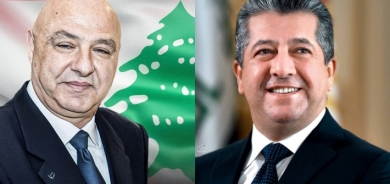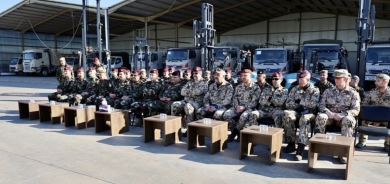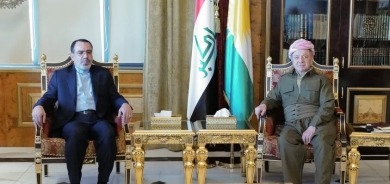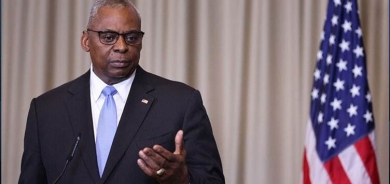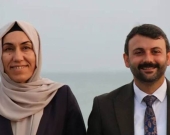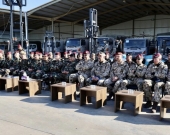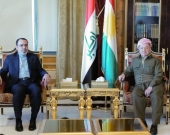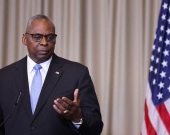Turkey not seeking war

He said if Syrian troops threatened Turkey's borders, they would be seen as a military threat. Nato has held a special session to consider the attack.
Syria insists the F-4 Phantom jet was shot down inside Syrian airspace.
Meanwhile, Syrian opposition activists have reported fighting near Republican Guard positions in suburbs of Damascus.
There were clashes in Qadsaya and al-Hama, around 8km (5mi) from the centre of the city, the Syrian Observatory for Human Rights told AFP news agency. The British-based organisation also said that security forces had entered the Barzeh area of the city.
Several casualties were reported in Qadsaya, according to the Local Co-ordination Committees.
International media cannot report freely in Syria and it is impossible to verify the reports.
Mr Erdogan spoke of Turkey's "rage" at Syria's decision to shoot down the F-4 Phantom on 22 June. "A short term border violation can never be a pretext for an attack," he said. The Turkish jet was on a training flight, testing Turkey's radars in the Eastern Mediterranean, he said.
He made it clear that Turkey was adopting a "common sense" attitude, although that "shouldn't be perceived as a weakness".
Earlier, in a letter to the UN Security Council, Turkey described the shooting down of its F-4 reconnaissance plane as a "hostile act by the Syrian authorities against Turkey's national security" and "a serious threat to peace and security in the region".
The BBC's Barbara Plett at the UN says the letter does not ask the council to take any action.
Turkish deputy prime minister Bulent Arinc said the shooting down of the plane "would not go unpunished", but stressed Turkey was not seeking a military response.
Turkey, a Nato member, requested a meeting of the alliance's ambassadors in Brussels after invoking Article 4 of Nato's founding treaty, which entitles any member state to ask for consultations if it believes its security is threatened.
This is believed to be only the second time in Nato's history that a member state has invoked Article 4. In 2003, Turkey asked for Nato assistance to ensure its security in the run-up to the Iraq war.
A Nato official quoted by AP news agency said Turkey's Nato envoy would inform other ambassadors of the details of the incident at Tuesday's meeting.
The envoys are then expected to discuss Turkey's concerns but not decide on anything specific, said the official.
The North Atlantic Council - which consists of ambassadors from all 28 Nato countries - works by consensus and all members must approve any action.
Mr Arinc, speaking after an emergency cabinet meeting on Monday, called the shooting down of the jet "a hostile act of the highest order" but added that Turkey had "no intention" of going to war.
"We don't believe warmongering or provoking the crowds by being righteous is the right thing to do. What needs to be done will be done within a legal framework," he said.
Tensions between Syria and Turkey rose even higher on Monday when Turkey accused its neighbour of firing on another of its planes.
Mr Arinc said the CASA search and rescue plane - which had been looking for the F-4 Phantom jet - was not brought down.
Syria's foreign ministry spokesman said the Turkish plane appeared to be a threat
He said the Syrians stopped firing after a warning from the Turkish side.
Ankara has said the jet strayed into Syrian airspace by mistake last Friday but was quickly warned to change course by Turkish authorities and was one mile (1.6km) inside international airspace when it was shot down.
Syria said it was unaware that the plane belonged to Turkey and had been protecting its air space against an unknown intruder.
But in its letter to the UN Security Council, Turkey says that intercepted radio communication shows that Syrian units were fully aware of the circumstances of the flight.
Relations between the two countries were already highly strained before the F-4 was shot down.
Mr Erdogan has been outspoken in his condemnation of Syrian President Bashar al-Assad, whose government he accuses of brutally putting down opposition protests.
Source: BBC


